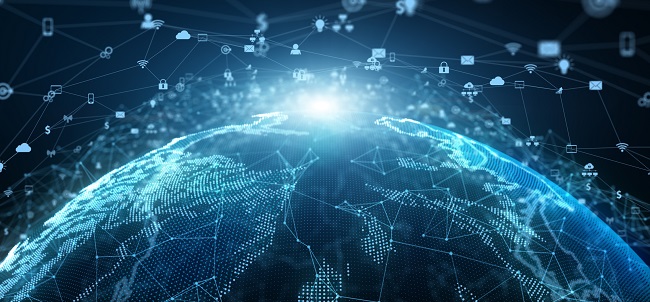A guide to disruption
What is disruption?
We are living in an age of disruption, defined as fundamental changes to the way organisations and ecosystems operate. Organisations can no longer rely merely on product and service innovations, and instead need to change their business models to survive and succeed. Disruption comes in many guises, but rarely do so many businesses face disruption from the same source as they have done in the COVID period. The need to adapt and develop at breakneck speed has been hugely challenging, but many have found opportunities to experiment with processes and tools. We must reflect on these and work out what we are doing currently. We must also give consideration to what we need to do to work more effectively in future.
As with any period of immense disruption, there are ripple effects which send shockwaves through everything from economies, to our working practices, to the way we travel. Even our deeper political and social beliefs are affected in the process. Such disruption makes people question what they want and what they value. And such questions can be unsettling and disturbing.
Disruption in an age of COVID-19
COVID-19 has provided far-reaching impetus for change. It has shaken up all sectors to a greater or lesser extent and has forced organisations and their customers out of their comfort zones and into new ways of operating and thinking. It is already clear that the crisis has accelerated many long-term trends such as automation and the switch to cleaner, more environmentally friendly power.
It is probably too early to say whether remote working and shopping will continue in the longer term. However, it does seem likely that the positive experiences associated with lockdown, including increased familiarity with digital tools, will accelerate a move towards more flexible working and shopping that has been long predicted but slow to develop. Similarly, the need to reduce physical interaction is likely to drive new demand for automation and cause organisations to explore more and innovative uses for artificial intelligence (AI).
Challenge and change
Challenge is what internal auditors do. Internal audit is the principal function in a business, with a remit to challenge the executive and the status quo, where the business and its managers miss opportunities or fall short of their stated aims and standards. It may take courage and tact, but a crisis is a good time to demonstrate value and to offer ideas for solutions, as well as criticisms.
Change is exhausting and it’s important to celebrate what you have already achieved – whether this is simply staying on track and helping your organisation to survive, or whether you have been in the fortunate position of being able to take up new opportunities to work differently and offer a wider range of more targeted internal audit work. Most will require a period of reflection to assess what has happened and to give team members a chance to recharge and appreciate what they have done well.
Key sources of disruption
We are seeing four major sources of disruption impacting internal audit: technological disruption, business disruption (such as major corporate programmes, reengineered processes, new markets and the supply of people and talent), operating model disruption (such as the emergence of remote working and shared service centres, virtualisation of services and offshore working), and market disruption (geopolitical changes, new regulations, the COVID-19 pandemic and changes in customer behaviour). Each of these is connected and affects the others.
Organisations who were happy to ignore suggestions that seemed unnecessary in good times may be more receptive when markets are under pressure. Similarly, internal auditors with an an in-depth knowledge of their organisation’s strengths and weaknesses, plus rigorous overview of economic risks are in a good place to highlight innovations and best practice that could help executives make important decisions at a critical time.
However, it’s equally important to use this time to look ahead. To hold on to a sense of momentum and excitement and to ask how you can harness lessons learnt to carry you, your team and your wider organisation through the next wave of disruption.
Lessons for the future
A global crisis raises baselines, exposes weaknesses and shifts established norms. It’s too early to say what all the long-term effects will be. We need to wait for more dust to settle and some consequences will emerge gradually over the next few years. Meanwhile, other disruptive forces will not hang back to allow us time to think and reflect. Some already loom on the horizon.
So, take a deep breath, reflect and analyse past lessons.
- What are you doing differently?
- What effect has this had on your team, on its work, on stakeholders and on your business?
- What are peers and internal audit teams in other organisations doing – and can you learn from them?
- How has the disruption of the past 18 months affected your team’s opportunities to work differently, and what skills, people and resources do you need to develop these?
- What risks have emerged, within the internal audit team and across the business, and what needs to change to address these?
- Are you better or worse prepared for future disruption and can you make yourself more resilient?
After any period of rapid change, we need to pause – but don’t take too long about it.
Please join us on the journey ahead. We will continue to update this page in the weeks and months ahead as new, exciting and perhaps terrifying disruptive challenges present themselves. We are here and we will support our members and the profession through challenging times.









